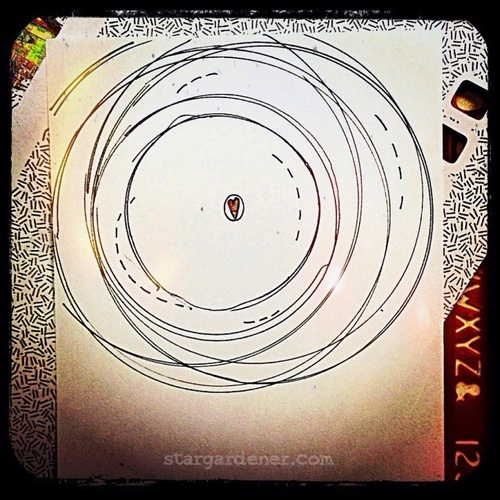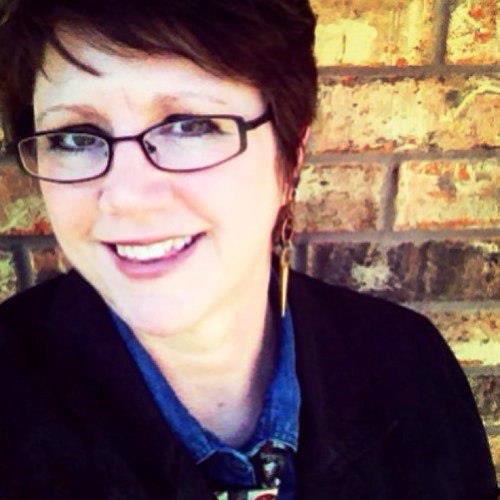knowing your boundaries :: love that does no harm
Editor's Note: during the month of June, members of my Story Sessions community will be posting about what it means to pursue dreams, engage in self-care and practice active boundaries. They had free reign on what they wrote, and the topics come from my 30 Days of Prompts. I'm so excited about the wisdom these ladies will share with you, and I know you'll be inspired.
xoxo,
Elora Nicole

We always know.
We know the boundaries of our personal comfort zones. We know which situations and which people {and types of people} create a fight or flight response within us. When our sympathetic nervous system sounds an alarm, adrenaline courses and our entire being goes into full alert. In that moment ... we know.
But leave? "Oh, that wouldn't be polite."Respond in a way that protects us from harm — insult or injury? Oh, someone may be offended or even hurt if we walked {ran} away from the situation that cued our internal {self-protective} warning light to flash bright red. So, we remain. We find ourselves almost paralyzed to react or even to respond in the midst of the situation.
We dam the flow of our spirit and emotions alerting us to exit.Unsure of an alternative response, we react from our default mode. We do what we know, that which we have been taught with words and actions and outcomes. Because we love — deeply and without conditions. And often that love — that raw, authentic element of self — is misused {abused} as a weapon against us.
Love is the most frequently misused term {and emotion}.A love that does no harm enraptures us in liberty and empowerment, comfort and safety. It needs no bounds because it is boundless, it penetrates the soul with everything righteous and healing. As the givers of such love — as conduits of unadulterated affection — we are often unaware we also have the authority to create personal boundaries.
We are readily told about love and forgiveness. But we are not routinely told about boundaries — our God-given right to choose and to decide what we need, what is safe for us. Within religious circles we are told that forgiveness looks friendly and open, a smiling face and a gracious presence — a pretentious state denying persecution and abuse ever happened.
"Let's not make this a big deal." ... "It's over now." ... "We can't live in the past."Forgiveness does not ensure reconciliation — and certainly not the right to ease of circumstances for the offender-abuser. The details of reconciliation are defined by the wronged and abused. Because it will never be possible to be in the same room with the person who slandered or abused us without varying degrees of intense discomfort.
That reality does not reflect a lack of forgiveness. It means we suffered without cause, and we learned to distance ourselves from the offender-abuser. Forgiveness means we severed ties with the behavior or incident. It means we liberated ourselves from the grip of the suffering and sins committed against us — and promised ourselves to release the injustice of it to God.
Forgiveness is an act of our will and rarely confirmed by our emotions.Reconciliation is not a condition or guaranteed outcome of forgiveness. It can only occur after the offender has repented {admitted the harm against us, changed course, proven a willingness to change} — and is a result of mutual effort {commitment, investment of time and energy}. It means the offender assumes 100% of the responsibility for his {or her} actions — even if it means he {or she} is embarrassed, ostracized or even incarcerated.
If at any point the offender ceases to be in agreement with his {or her} admissions or repeats the offense — it nullifies the original agreement of reconciliation. If they choose to burn their chance — the lack of reconciliation is 100% their fault. It is not our duty to remain in the hole dug by another person's choices and hope that somehow we do not become buried alive in the wait.
Reconciliation is not always possible, or may take decades to accomplish.If at any point we become overwhelmed with the roller coaster realities of navigating the intensity of emotions and other physical manifestations of stress — it is time to allow space for healing and reevaluation. We were created with a physical response system to alert us when we need to pull back and listen to the still, quiet voice of Holy Spirit. Overwhelm is our sign that we need to invest in {focus on} self-care and personal restoration.
It is extremely unlikely a recovery period will include the offender or anyone who advocates for him {or her}. The necessity of our recovery is not a situation we caused, it is an outcome of the original offense; the need for our recovery was caused by the offender. The continuation of reconciliation becomes 100% our choice at that point — just as the original offense was 100% the offender's choice. He {or she} must face the consequences of choices imposed upon us and face the continuing consequences of the original offense.
"No." is a complete sentence."You said you would try." When anyone blames us for a lack of reconciliation or insists upon more time or effort on our part — it is a blatant continuation of the abuse. It is a refusal to respect our boundaries and our decisions; we are being asked to change our choices or bear unfair responsibility for reconciliation. It is unjust to be expected to trust in the offender's motives. The needs of another adult cannot be transferred or imposed upon us.
We are already bearing the challenge of creating or maintaining personal boundaries, therefore we may be tempted by our fight or flight response to engage in conversations of argument or appeasement. Neither is necessary. We are not duty bound to explain or defend ourselves. This is our time to recover and move on. And who we share our {one wild and precious} life with is 100% our choice — without apology or explanation.
We know the situations and people that affirm us ...Forgiveness is an act of our will through divine Grace. Our emotions will nag on within us, but our emotions are not meant to the basis for decisions. Emotions can be likened to emergency lights flashing a need for aid and comfort {and God's amazing grace}. Offenders {and their aid-and-abetters} are never part of the rescue squad. They only speak "Should" — a language most of us know how to translate — and all to often the default language in the midst of uncertainty or when we feel compelled to defend ourselves.
We were created for relationship; we are born into a family and we create a family of choice. Within the relationships we foster is a love that does no harm because we know what Love is — and what it is not. Love that does no harm flows from God through us by a willful choice. Yes, there are bits of us that crave to fit in, to have a place in our family of birth; and to be loved and accepted {by as many people as possible}.
There is not middle ground — only appeasement.We are either moving away from what causes us to suffer — or we are moving back to its soul-ripping claws. Appeasement is rooted in a vain hope that somehow the circle of offending behavior will be broken. In that space, we are compelled to try again — extending our reach "too far" and realizing it only as the tidal wave of pain and recurrent behaviors crush us.
But we seek control and some semblance of stability. We ache for the suffering to be over — to cease its constant realities. And it is rare that anyone in the family unit where the suffering occurred will acknowledge the depth of suffering unless they experienced the same offense or abuse. We are tempted to be an audience for those who don't understand — to listen to their pleas and then attempt to explain that which we ourselves do not understand.
Abuse is rooted in fear. It is unexplainable; it never "makes sense" ...Abuse is a mis-use of relationship and authority — of trust and of love. It is rooted within the unseen flesh of the offender and cannot be understood; it is only evidenced by the pain and suffering it causes.
Recovery and restoration are rooted in love. And it takes as long as it takes.Our personal recovery and restoration is also unexplainable — because it is a divine occurrence. It requires undefined amounts of time. This is perfectly acceptable — even if no one affirms us in that. Healing after forgiveness will come but it will take 2-3 times longer than we ever expect. It will require more time if contact with people who need us to be "okay" around our offenders is necessary, due to personal or professional associations.
Each of us has the right to choose our boundaries — regardless of what we believe or are told ... A love that does no harm will never expect us to do what we cannot bear because this love is without conditions. We are never alone even when it feels that way. We will find our way through suffering and become empowered by it.
//

Teresa, aka stargardener, encourages women daily to bravely embrace their wildest dreams — baby steps at a time. Many refer to her as a midwife to artists' dreams, seeing them through the birthing process of the creativity locked inside. She is an avid Instagramer (stargardener) and a rebel-promoter of no-rules art journaling and creative planning via TheArtJournaler.com and RightBrainPlanner.com



